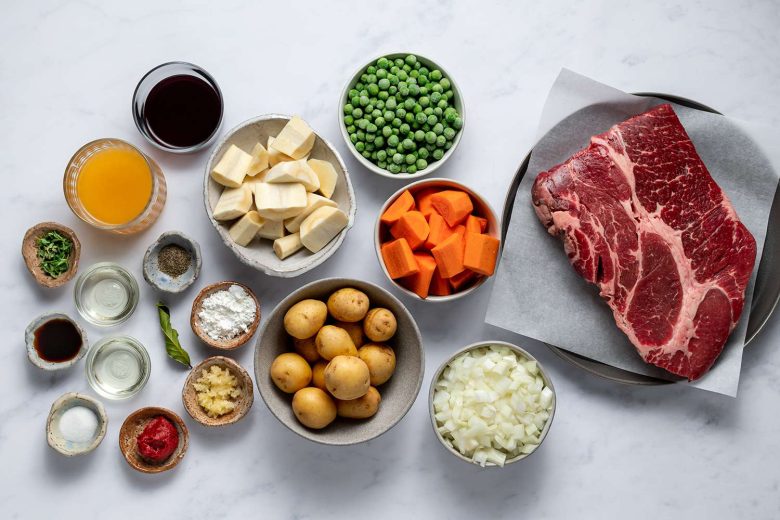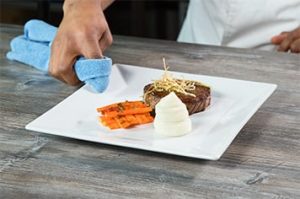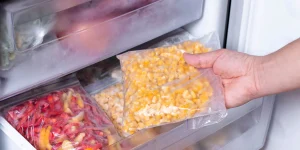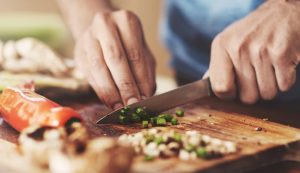Cooking can be fun and rewarding, but it can also be scary and stressful for someone who has never done it before. With the right help and a few key tips, anyone can become a good and confident home cook. This article discusses ten important cooking tips that will help people who are new to the kitchen get comfortable in the kitchen, improve their cooking skills, and enjoy the process of making delicious meals.
1. Start with Simple Recipes
When you first start cooking, it is important to stick to simple recipes that do not require complicated skills or hard-to-find ingredients. Choose recipes with short ingredients and easy-to-follow steps. These simple recipes will not only make cooking less scary, but they will also help you learn the basics of cooking. As your cooking skills improve, you can move on to more difficult meals.
2. Read the Recipe Carefully
A big mistake that many people make when they cook for the first time is not reading a recipe from start to finish before they start. Read the full recipe to learn the cooking steps, ingredients, and time required. Preparing ahead of time can help you avoid shocks and ensure you have everything you need. It also helps you plan your cooking process better.
3. Gather All Ingredients
A key idea in food is “mise en place,” a French expression that means “everything in its place.” Before you start, gather everything you need for your meal. This way, you won’t have to stop and look for items or tools during the cooking process, which can disrupt the entire process and lead to mistakes. Preparing everything before you start cooking also makes cooking more fun and less stressful.
4. Learn Basic Knife Skills
To cook quickly and safely, you need to be good with a knife. Spend some money on a good chef’s knife and learn how to perform basic cutting movements, such as slicing, dicing, and chopping. Proper knife handling not only makes food preparation faster and more accurate, but it also reduces the chance of accidents in the kitchen. You can find many tutorials and videos online that teach you the basics of using a knife.
5. Understand Cooking Terms and Techniques
There are many terms and methods used in cooking that beginners may not be familiar with. Learn common cooking vocabulary such as “baking,” “simmering,” “blanching,” and “shredding.” Understanding these terms will help you follow recipes more accurately and achieve the results you want. You should also learn how to cook in different ways, such as baking, roasting, grilling, and steaming, to expand your cooking skills.
6. Taste and Season as You Go
A crucial part of cooking that can make or break your food is seasoning. If desired, you can vary the seasoning by tasting the food at different points during the cooking process. Spices, herbs, and other seasonings can be used in place of salt and pepper, but don’t be afraid to try new things. Remember that it’s easier to add more spices than to make a dish that already has too much, so start with a little and then add more.
7. Don’t Be Afraid to Make Mistakes
It’s normal to make mistakes as a way to learn, especially when cooking. If a dish doesn’t turn out the way you expected, or you make a mistake, don’t give up. By using your mistakes as learning opportunities, you can improve your skills and gain a better understanding of how to cook. With time and practice, your cooking skills will improve and you’ll gain confidence.
8. Keep your Workspace Neat and Clean
A clean and tidy kitchen is essential for fast and enjoyable cooking. Remove all unnecessary items from the counter and wash dishes and cookware between uses. This will not only speed up the cooking process but also reduce the chance of getting sick from contaminated food. Keeping your kitchen clean also helps you focus on the task at hand and makes it easier to clean up after cooking.
9. Use Fresh, High-Quality Ingredients
The quality of your ingredients can have a big impact on the taste and overall effect of your meal. Use fresh, high-quality foods whenever possible. Typically, fresh foods, vegetables, and dairy products have a better taste and texture than processed foods. In addition, using good produce often means you can cut back on the seasonings and try to create delicious meals.
10. Be Patient and Enjoy the Process
Cooking is more about the process than the result. Be patient and enjoy the time it takes to prepare your food. Cooking can be a calming and soothing activity that allows you to be creative and connect with the food you are making. Don’t rush these steps. Instead, enjoy the process and be proud of your progress, no matter how small.
Conclusion
For those new to cooking, cooking can be difficult, but also very rewarding. To become good at cooking, start with simple recipes, read the instructions carefully, gather the tools and supplies you need, and practice basic skills. You can improve your cooking skills by learning new words, tasting and seasoning as you cook, and not being afraid to make mistakes. Keeping your workspace clean, using fresh produce, and enjoying the process of cooking will make the whole experience more enjoyable and rewarding. With these ten essential tips, you’ll be well on your way to becoming a skilled and confident home chef who can prepare a wide variety of delicious dishes.
FAQs
1. How can I use a knife better?
To become better at using a knife, you need to practice and know how to do it properly. First, learn how to make simple cuts, such as slicing, dicing, and chopping. Make sure you use a good, sharp knife and practice regularly. You can also improve by watching classes and taking cooking lessons.
2. What should every new cook have?
A chef’s knife, cutting board, measuring cups and spoons, mixing bowls, baking sheets, pans, baking trays, and wooden spoons are some of the most important tools for a new cook. With these simple tools, you can prepare a wide variety of meals.
3. How do I know if the spices in food are right?
Check the spices on your food as it cooks and change them if necessary. Start by adding a pinch of salt and other spices and keep adding until the seasoning is right. If you are just starting, it is also helpful to follow the instructions for adding to the recipe.
4. What are some easy meals that anyone can make?
For starters, pasta dishes, stir-fries, soups, salads, and one-pot meals are all easy ideas. Many of these recipes only require a few items and steps and are easy to follow. Look for recipes that have clear steps and don’t take a lot of time to make.
5. How do you keep food from burning?
Don’t let your food burn. Cook over medium to low heat and watch it carefully as it cooks. Use a timer and stir the food frequently to prevent it from overcooking. Some other things that can help prevent food from sticking and burning are nonstick pans and plenty of oil or butter.




